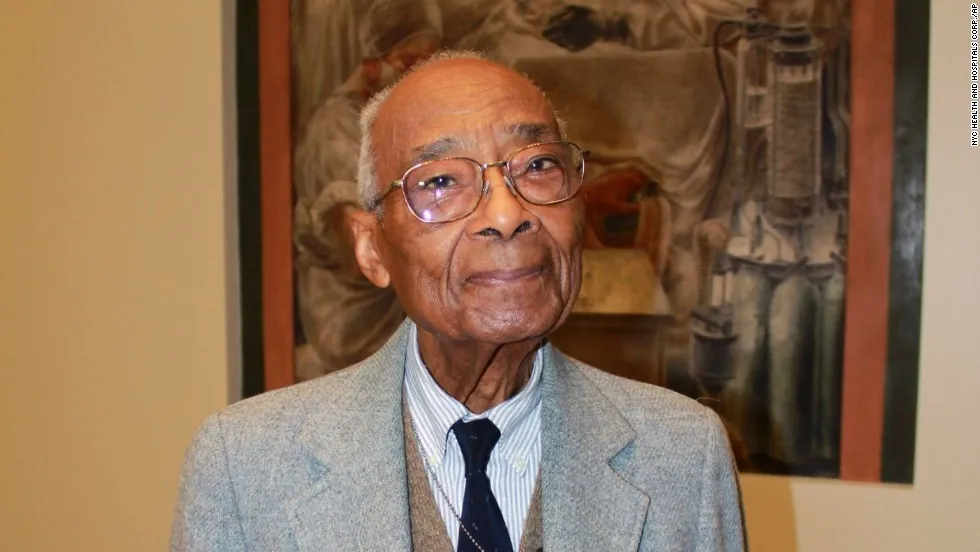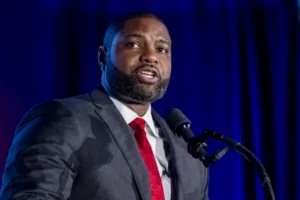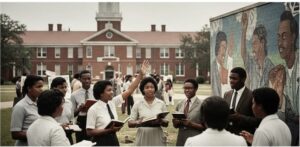The Marvelous Dr. John Cordice Jr.

by Herb Boyd
Although Dr. John Cordice Jr. attended to countless numbers of patients with heart trouble, he is most famous for being one of the three doctors at Harlem Hospital in 1958 who operated on Dr. Martin Luther King Jr. after he was stabbed by a deranged woman. For many years the credit for saving Dr. King’s life was given to Dr. Aubre de Lambert Maynard, the hospital’s chief of surgery. But historians have corrected the record and concluded that it was mainly the expertise of Dr. Cordice and Dr. Emil Naclerio, who actually performed the vital surgery.
Dr. King was in Harlem at Blumstein’s store on 125th Street signing his book “Stride Toward Freedom,” when Izola Ware Curry stabbed him with an envelope opener that came so close to his heart that if he had sneezed the blood would have filled his lungs. He was rushed to the hospital’s emergency room and the doctors were summoned to save his life. Dr. Cordice wasn’t on duty that day and received the call while he was visiting a Brooklyn medical office. He was told that an important person had been injured. They had to use a hammer and chisel to crack King’s sternum and break three ribs in order to remove the blade.
Born John Walter Vincent Cordice Jr. on June 16, 1919, in Aurora, North Carolina, he was the son of a physician, who worked for the U.S. Public Health Service during the flu epidemic of 1918. The family moved to Durham, N.C. when John was 6. After graduating early from high school, he attended New York University and its medical school.
During World War II, he served as a doctor for the famed Tuskegee Airmen, a stint that interrupted his internship at Harlem Hospital. But after the war he resumed his internship at the hospital and held a number of residences thereafter. He studied in Paris in 1955-56 and was part of a team that performed the first open-heart surgery in France.
All of this was in preparation for his becoming the chief of thoracic and vascular surgery at Harlem Hospital, and he was in this capacity when Dr. King was a patient there after the stabbing. On several occasions Dr. King reflected on the incident, praising the doctors and their skills. He wrote thank you letters to them and in his last public speech before his assassination in 1968, recounted how without the doctors many of his achievements would have never occurred.
“If I had sneezed, I wouldn’t have been around in 1960, when students all over the South started sitting in at lunch counters,” he said. “If I had sneezed, I wouldn’t have been around here in 1961, when we decided to take a ride for freedom and ended segregation in interstate travel. If I had sneezed, I wouldn’t have been here in 1963, when the Black people of Birmingham, Ala., aroused the conscience of this nation, and brought into being the Civil Rights Bill. If I had sneezed, I wouldn’t have had a chance later that year, in August, to try to tell America about a dream I had.”
Later, Dr. Cordice would hold the same position at the Queens Hospital Center, and subsequently was president of the Queen’s Medical Society in 1983-84.
On Dec. 29, 2014, Dr. Cordice, the last surviving surgeon from that hospital team, died at 94 in Sioux City, Iowa, his granddaughter Jennifer Fournier said. He had moved to Iowa in November to be near family.
“I think if we had lost King that day, the whole Civil Rights era could have been different,” Dr. Cordice said in a Harlem Hospital promotional video in 2012. Dr. Naclerio died in 1985, Dr. Maynard in 1999.








